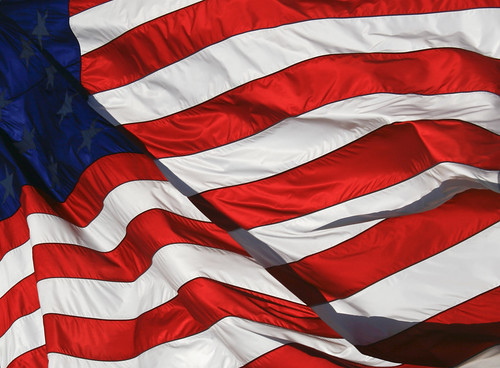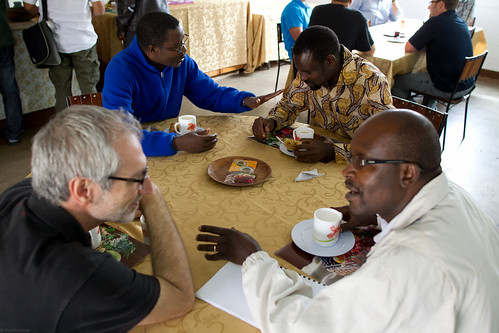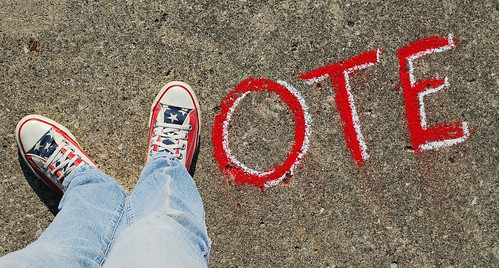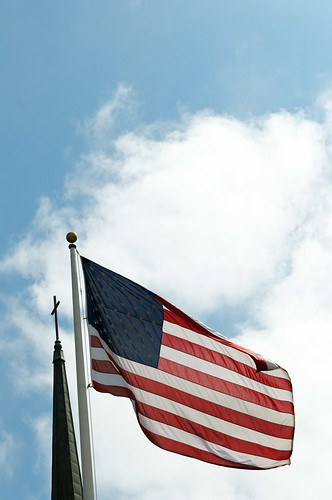 |
| Photo Credit: yorgak |
7 Questions to Ask Before Posting about Politics on Social Media by Scott Slayton (One Degree To Another)
"Let’s pretend that what you want to say about politics on social media should be said. Now you need to consider if you are the right person to say it. Do you have an insight into this issue that you haven’t seen somewhere else, or are you merely repeating an argument you read in another place? Do you have a role or responsibility where people are looking to you for guidance? Why should you be the person to say what you are about to say?"2017: A Year of Digital Detox by David Murray (HeadHeartHand)
"I’m utterly convinced that vast numbers of Christians are dangerously addicted to digital technology. It has way too big a place in our lives and it’s not just damaging us; it’s destroying us. Those who can get this under control are going to be uniquely placed to excel — relationally, vocationally, educationally, and financially. There is no surer way to a massive “competitive advantage.” But control (or lack of it) of our devices is also the biggest determinant of our spiritual health, growth, and usefulness. If we want to grow in grace and in the knowledge of Jesus Christ, we must grow in digital self-discipline."How To Avoid Being Psychologically Destroyed By Your Newsfeed by Ann Douglas
"Connect with other caring citizens who share your concern about what's happening in our country and our world. Talk to other people you know who may be going through an especially difficult time right now -- especially members of vulnerable or marginalized communities. Let them know that you will be there to support them and that you care. Smile at strangers. (Assume their good intentions unless proven otherwise.) Look for opportunities to build bridges, not walls. Finally, reach out for other types of support if you feel like you're really struggling. Self-care isn't selfish; it's self-preservation. You need to take extra good care of yourself right now."On Signalling Versus Displaying Virtue in a Trumpian Age by Derek Rishmawy
"I know that in many instances, especially after a tragedy or an outrage, there’s a pressure to tweet or post about it to make sure everybody knows that I too care. I too am saddened, or grieved. I fear that at times when I remain silent, or have found out about something late, I’ll be thought callous for having not said anything. Of course, with any fancy new word or concept, it can be used cynically. In which case, for those with a more jaded eye, or on the other side of a particular issue, all of the protests, tweets, and so forth are basically just virtue-signalling. This critique tends especially to be leveled by conservatives against progressives whose tribal identification seems to encourage that. And since Newton’s Third Law generally applies to these sorts of things, I have now seen various progressives complain about the very notion of critiquing public displays of virtue. Why would virtue be anything to critique? Seems worth emulating and encouraging. Indeed, we ought to be cynical about the cynicism and see nothing but self-protection in this."Campus Ministries Race to Keep Up with Record Number of International Students by Sarah Eekhoff Zylstra (The Gospel Coalition)
"The foreign students flooding into U.S. universities are, in some ways, the ideal ministry field. Many are bright and affluent, able to afford some of the world’s top schools. That means they’re also likely future leaders, one day returning home to take influential positions. And generally comfortable with and curious about religion, they’re not hampered by the apathy or antagonism some American students feel toward Christianity. Their influence can be far-reaching."Terrorism and Immigration: A Risk Analysis by Alex Nowrasteh (Cato Institute)
"Including those murdered in the terrorist attacks of September 11, 2001 (9/11), the chance of an American perishing in a terrorist attack on U.S. soil that was committed by a foreigner over the 41-year period studied here is 1 in 3.6 million per year. The hazard posed by foreigners who entered on different visa categories varies considerably. For instance, the chance of an American being murdered in a terrorist attack caused by a refugee is 1 in 3.64 billion per year while the chance of being murdered in an attack committed by an illegal immigrant is an astronomical 1 in 10.9 billion per year. By contrast, the chance of being murdered by a tourist on a B visa, the most common tourist visa, is 1 in 3.9 million per year."The Bishop Eddie Long I Knew by John Blake (CNN)
"Who am I to say how anyone should face a terrifying illness? Sometimes hope is all people have; let them believe what they want if it helps them get through the night. But there was something undeniably sad about Long not being able to level with those at New Birth who'd stuck by him when everyone else had fled. I suspect some of that inability comes from the prosperity theology he preached, which is pervasive in contemporary churches. I've heard scholars call it a heretical belief that distorted the life of Jesus. I think it fails on another level: It doesn't equip people to deal with loss. If you preach that wealth and health are a sign of God's favor, what do you do when you begin to lose both, as Long did?"Teacher Has Personalized Handshakes With Every Single One of His Students (Good Morning America)
Why do I think this is an unbelievably cool thing? Because this young teacher demonstrates to each of his students that they have value in his eyes, that they are unique and that they are known.

















